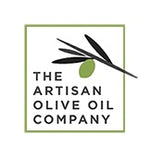What is balsamic vinegar made from?
True balsamic vinegar begins with grape must, cooked gently to concentrate sugars and flavour, and then aged in a series of wooden casks (oak, chestnut, etc.). The ageing process gives it its viscous texture, balanced sweetness and acidity — without any artificial thickeners or colouring. Your artisan collection emphasises this purity: the vinegar is naturally dense, glossy, and layered in flavour, thanks to traditional ageing practices.
How should I store balsamic vinegar, and does it expire?
Because genuine balsamic has high acidity and is stable by nature, it keeps very well. Keep it sealed and away from heat or sunlight (like oils). Over years, especially in quality bottles, flavours may evolve and intensify. Unlike mass-market vinegars, which might lose aroma or brightness, your artisan balsamic is intended to mature, and its quality should remain strong indefinitely when stored correctly.
How do I use balsamic vinegar in cooking?
Your balsamic’s richness makes it ideal for dressings and marinades, particularly when paired with good olive oil. Use it to finish grilled vegetables, fresh cheeses, or salads. For meats or fish, reduce it gently into a glaze. It also pairs beautifully with fruit (strawberries, peaches) and desserts to bring a refined sweet-sharp complexity. Because your balsamic is dense and pure (no artificial additives), a few drops go a long way in elevating a dish.
How do I use balsamic vinegar in cooking?
Your balsamic’s richness makes it ideal for dressings and marinades, particularly when paired with good olive oil. Use it to finish grilled vegetables, fresh cheeses, or salads. For meats or fish, reduce it gently into a glaze. It also pairs beautifully with fruit (strawberries, peaches) and desserts to bring a refined sweet-sharp complexity. Because your balsamic is dense and pure (no artificial additives), a few drops go a long way in elevating a dish.
Does “balsamic” always mean it’s from Italy?
“Balsamic” on its own doesn’t guarantee genuine origin. To be authentic, production must happen in Modena or Reggio Emilia, with well-defined rules about the grape must ratio and ageing in wood. Your product pages emphasise this: true Balsamic Vinegar of Modena IGP or Traditional Balsamic DOP implies that the vinegar was made following centuries-old regional practices, rather than generic “balsamic-style” variants.
Does balsamic vinegar contain additives, sugar, or colouring?
Due Vittorie's balsamic collection emphasises purity: no additives, no artificial thickeners, no caramel colouring. The richness and density come entirely from slow ageing of the grape must in wooden barrels. This contrasts strongly with many commercial “balsamic-style” vinegars that rely on additives to mimic texture or sweetness. Always check the label: if it lists ingredients beyond grape must and optionally wine vinegar, it’s not true traditional balsamic

